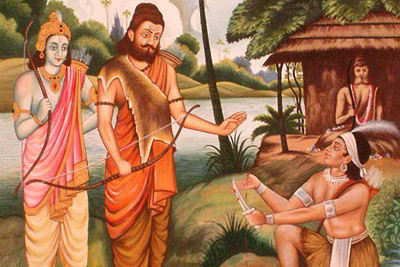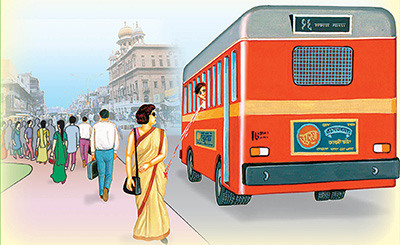One should not talk ill of others in their absence
Do not talk ill behind someone’s back
Maharshi and restraint
न यावि पूयं, गरिहं च संजए
One who does not get conceited even when venerated and does not feel low when censured; he is restraint, maharshi
Association with the sadhu
Contacts must be maintained with the Sadhus
Real education is the key to success
Be virtuous in smallest of the deed so that in future you can succeed
The Gods – Their Cars – Their Bells their Family – Part 2
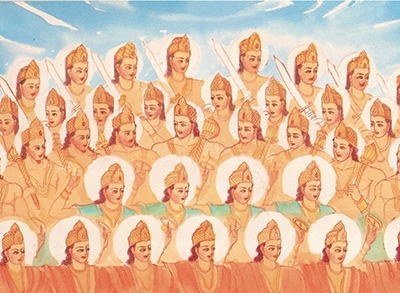
Surrounded on all sides by ten thousand Samanikas, by the fourfold body guards, by the Trayastrinsas, the three assemblies, the four Lokapalas, the seven great armies and the seven generals, the Indra of Arana and Acyuta, pure, began to bathe the Blessed One. After putting on his upper garment, possessing unselfish devotion, Acyuta took a double handful of flowers of the blooming coral-tree, etc. After perfuming it with fragrant dense smoke from incense, he threw the double handful of flowers before the Lord of the Three Worlds. Continue reading “The Gods – Their Cars – Their Bells their Family – Part 2” »
Causes of violence
Angry, greedy and the attached commit violence
Bharat – Bahubali
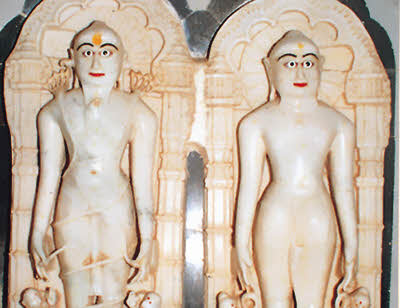
The idol of Bharat Chakravarti standing in deep meditation,
Bahubali’s idol is also visible here with long beard and moustache, he remained so still that birds mistook him for a tree and they built their nests in his long beard. His whole body was covered with bushes. Continue reading “Bharat – Bahubali” »
Banī miṭṭī kī saba bājī
Rāga: Gajhala
Bhāva: Ātmā ēka sōnuṁ bākī badhu māṭī… Māṭē ātmā daśānī śōdhanō sandēśa
Banī miṭṭī kī saba bājī, usīmēṁ hōta kyōṁ rājī
Miṭṭī kā hai śarīra tērā, miṭṭī kā kapaḍā pahērā;
Miṭṭī kā mhēla rahā chājī, usīmēṁ hōta kyōṁ rājī
The Fast-breaking of the Lord
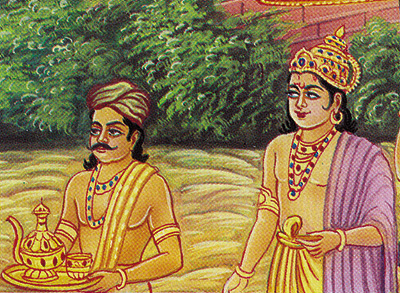
When he saw the Master coming, the Heir-apparent instantly ran on foot, outstripping even the footmen. Because the Prince ran without his umbrella and shoes, the assembly, also without umbrella and shoes, ran after him like his shadow. Bounding along in haste, his ear-rings dangling, the Heir-apparent looked as if he were again indulging in childish play before the Master. Sreyansa threw himself at the feet of the Lord, who was in the court of the house, and wiped his lotus-feet with his hair resembling a chauri. Continue reading “The Fast-breaking of the Lord” »
Understand this moment
Every moment we are losing life like the water kept in the palm. Slowly-slowly, a moment will come when age will be over and we would have breathed our last. Continue reading “Understand this moment” »










